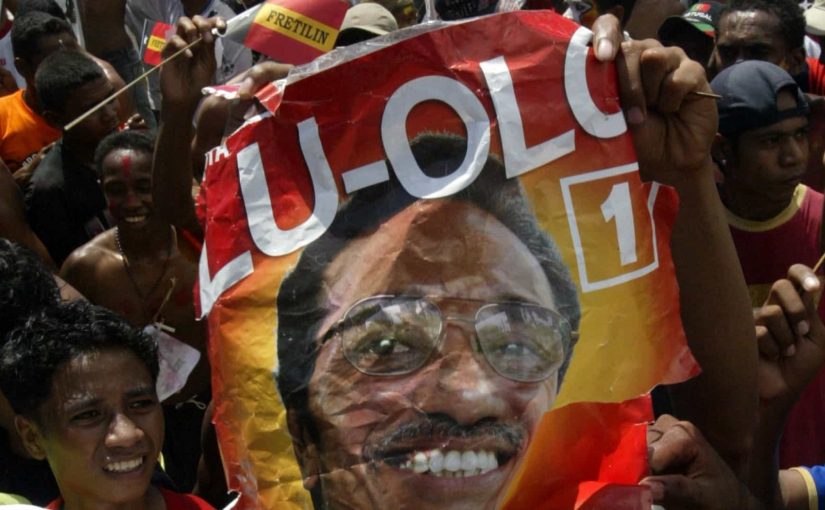Brazil’s Bolsonaro sentenced to 27 years in prison for plotting coup
Timor-Leste: President acknowledges likely election defeat, criticises campaign

File photo: Lusa
Timor-Leste’s president, Francisco Guterres – better known as Lú-Olo – on Wednesday acknowledged that provisional results of the second round of presidential elections in the country point to his defeat at the hands of José Ramos-Horta, a former president and prime minister, saying that he “respects” the outcome, despite criticising the tone of the campaign.
“It is the people’s decision and I have always said that losing or winning does not matter, it is part of democracy,” he told Lusa. “It was the people’s choice and, if this result is confirmed by Ramos-Horta’s victory, I have to respect it.”
Lú-Olo was speaking to Lusa at a time when around two-thirds of the votes had been counted and Ramos-Horta was leading by more than 17 percentage points, with 58.55% of the votes.
The data is from the provisional count by the Technical Secretariat for Electoral Administration (STAE), with only the count from the diaspora complete, votes from just five of the country’s 13 municipalities and 852 out of 1,200 polling centres had been counted.
Despite recognising that the preliminary data seems to confirm a win for Ramos-Horta, the incumbent made some criticism of his rival’s campaign, which he said did not given the entire population the opportunity to vote in full conscience.
“Our democracy in Timor-Leste is somewhat vitiated by the fact that the people have not had the best opportunity to choose with their own conscience,” he said. “There were several factors that influenced the conscience of the people, from money, threats and I don’t know what else that strongly conditioned the choice.”
He said that he would wait for the conclusion of the ballot process before speaking to Ramos-Horta and addressing the country, one month before the next president is to take office.
Asked whether Tuesday’s vote also represented a defeat for the government – given that he was supported in his bid for re-election by the political forces that make up the current executive – Lú-Olo defended the decision of the prime minister, Taur Matan Ruak, to join his campaign.
“The government and even the prime minister have every political reason to speak out during the campaign and can express what they have to say,” he said. “Especially given the fact that even before the start of the campaign José Ramos-Horta spoke out strongly saying that once elected president he would dissolve parliament and that dissolution would have implications for the government.”
This, he said, was the reason why Taur Matan Ruak took leave from his office to take part in the campaign: “doing what he did to defend … parliament and his own government.”
Now, however, and to realise those aspirations, Ramos-Horta has some complex issues to resolve, noted the head of state.
“He has a commitment to dissolve parliament, and I don’t know if he will fulfil that commitment,” Lú-Olo said. “But if he does, drastically or radically, we will have to look again at our Constitution to see if it allows the president to intervene in another organ of sovereignty. We will have to look to see if there are reasons.
“If he does not dissolve and goes for dialogue to have a new configuration in parliament, including changing the speaker of parliament, naturally that will have its implications on the government and I don’t know if the [coalition] will accept it,” he said.
In addition, he recalled, the very issue of taking office creates difficulties since, he recalled, Ramos-Horta has expressed the view that the current speaker of parliament, Aniceto Guterres Lopes, is illegitimate.
“If he takes office, that would imply recognising Aniceto as legitimate, legal and constitutional president,” said Lú-Olo, referring to the fact that the head of state’s inauguration is overseen by parliament. “It will be up to José Ramos-Horta to make the choices and for parliament to decide.”












Leave a Reply
Be the First to Comment!
You must be logged in to post a comment.
You must be logged in to post a comment.